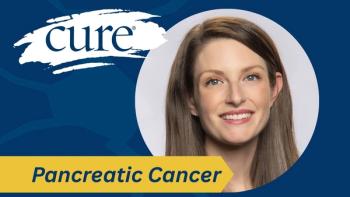
Five Things About Being Male and Facing Cancer
When confronting cancer many men also have to confront their preconceived notions of being a "man". Here are 5 lessons one male pancreatic cancer survivor learned from his journey.
I’m a classic male. I wear Costco jeans and thick flannel shirts along with size 13 boots. I even have a red Chevy 4x4 parked in the drive. Thus, when I got hit with pancreatic cancer, I found my male fantasyland torn to shreds.
Like so many of us guys, I hid in my man cave rarely coming out except for the big game or, of course, for a backyard BBQ. With it caving in, I had little choice but to come out and face my cancer head-on. It’s been rough but I’ve learned a lot about who I am, which is helping me become the man I want to be.
Here are five things I’ve learned in my now seven-year journey facing cancer.
1. It’s OK to cry about it.
I’m the typical “men don’t cry” sort of guy. Many of us are. Back when we were learning to crawl and banged our head into the coffee table, biting our lip and beginning to whimper, we were scolded, “Boys Don’t Cry!” But now realizing our end may be sooner than we want to tell ourselves, we find ourselves wet-eyed thinking about a tomorrow that may not exist. We say I have so much more living left to do but our cancer says otherwise.
For many of us, this sense of loss is more than we can take. It breaks us. Every time I thought of one of my three daughters walking down the aisle alone, I cried. Thankfully I’ve been there for two of their big days. I hope to make it to the third. It’s OK to cry, or even sob, about it.
2. It’s OK to give up control.
Like many guys, control is something I have always found solace in. I’m the Captain of my ship, or at least I told myself that till cancer took that away too. First, a six-hour surgery to excise my pancreatic tumor followed by months of radiation and chemo, then what seemed endless follow-up appointments dominated my life for close to a year.
I was forced to stop working for a time and now oncology appointments every six months remind me I am not in control of what happens next. It’s OK to give up control.
3. It’s OK to ask for help.
When my daughters were toddlers, they often told me, “I do it myself!” One daughter insisted on holding her own hand in the parking lot. I wonder where she learned this from? Well, pre-cancer I seldom asked for help. I considered it a sign of weakness.
Now I have no choice but to ask. Even now there are so many things I cannot do. With three compressed vertebrae courtesy of my abdominal radiation, I avoid lifting anything much heavier than a sack of dog food. Anything more I have to ask for help since getting another compression fracture just isn’t worth it. If needed, a good neighbor has been kind enough to come over and lend me a hand. It’s OK to ask for help.
4. It’s OK to let people in.
Like a lot of guys, I have always kept to myself. For the most part, I have tried to mind my own business and let other people have their space. Not that I shut them out but I had little need to involve them in my daily dramas of treatments that didn’t go well or annoying doctors who spoke over my head in jargon I had to look up. While still not a social butterfly, I’ve learned to let other people in, especially a couple of great friends. This has strengthened these years-long friendships. It’s OK to let people in.
5. It’s OK to be scared stiff.
Most of us guys can be scared stiff but try not show a hint of fear. Zilch. Cool. Calm. Collected. It’s a guy thing, I think. We are raised to look for monsters under the bed or those scary ones hiding in the closet. So, we never admit when we are petrified. It’s just not what we do.
Now on more than one occasion, I’ve been forced to come clean and admit I am terrified. Rather than letting it be a sign of weakness, confessing my fear has been a sign of strength. It’s OK to be scared stiff.
These are just five things I’ve learned about being male and facing cancer. For those guys whose worlds are coming apart due to cancer, as well as their tireless caregivers who stay with them treatment after treatment, it’s OK to cry about it, let go of control, ask for help, let people in and most of all, to be scared stiff.
For more news on cancer updates, research and education, don’t forget to




